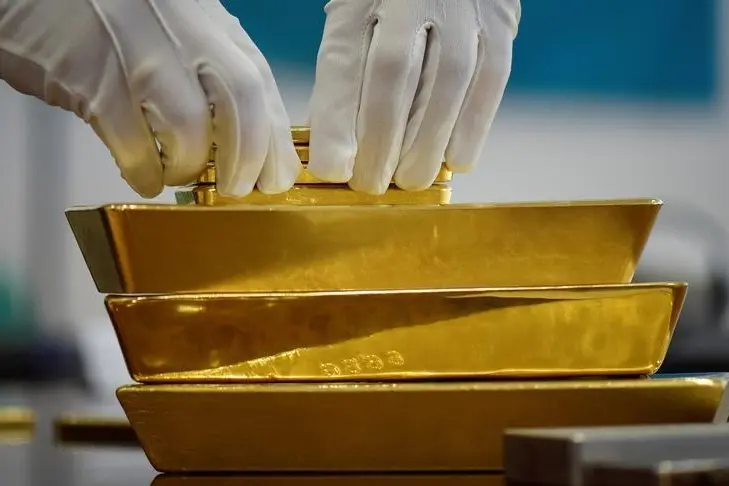PHOTO
LONDON- Gold edged higher on Tuesday, helped by weakness in the dollar after a trade deal was struck between the United States and Mexico but analysts said ongoing U.S.-China tensions would continue to weigh.
The United States and Mexico agreed on Monday to overhaul the North American Free Trade Agreement (NAFTA).
The dollar was pinned at its lowest in nearly a month against a basket of major currencies, while riskier assets such as equities rose. A weaker U.S. currency generally boosts demand for dollar-denominated commodities.
"The main trade dispute, meaning U.S.-China conflict, is still going on so this NAFTA deal is just a small aspect," said Commerzbank analyst Daniel Briesemann, adding that the effects on gold markets would be limited.
Spot gold rose 0.2 percent to $1,213.11 an ounce by 1115 GMT after snapping a six-day losing streak in the previous session and touching a two-week high.
U.S. gold futures for delivery in December were up 0.3 percent at $1,219.10.
The deal between the United States and Mexico pushed the dollar lower against a basket of major currencies as investors sought riskier assets and the greenback's safe-haven appeal declined. In recent months investors have sought safety from the trade disputes in U.S. Treasury bonds, which entails buying dollars.
Meanwhile, holdings of the largest gold-backed exchange-traded fund (ETF), New York's SPDR Gold Trust GLD , have firmed slightly after this month's drop to their lowest since January 2017 but are still down about 11 percent since late April.
Net short positions in COMEX gold contracts increased for a sixth straight week to a new record.
"What will be important is whether we will we see a short squeeze, which could push gold higher," said Commerzbank's Briesemann.
Spot silver was up 0.6 percent at $14.94 while platinum rose 1.2 percent to $808.60 after touching a two-week high of $808.70.
Palladium was steady at $948, having touched $950.25 to match the 1-1/2 month high hit on Monday.
The NAFTA deal, which includes new rules for the car industry, lifted platinum and palladium because of their use in auto catalysts. But analysts say the fundamental impact of the deal should be limited.
"Although Mexico is an important manufacturing hub for the U.S. car industry, the deal does not change our outlook for the U.S. car market," said Julius Baer commodities research analyst Carsten Menke.
(Additional reporting by Nallur Sethuraman in Bengaluru Editing by David Goodman) ((zandi.shabalala@tr.com; +44 207 542 5937; Reuters Messaging: zandi.shabalala.thomsonreuters.com@reuters.net))





















